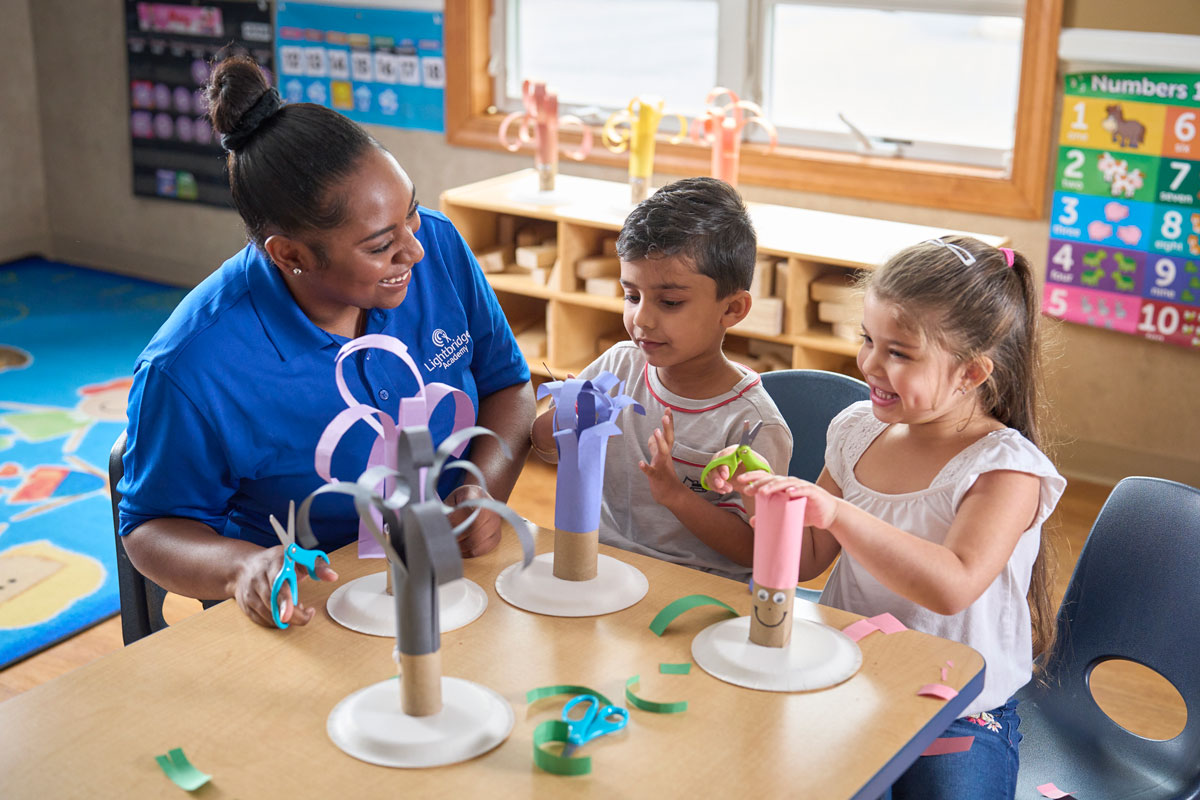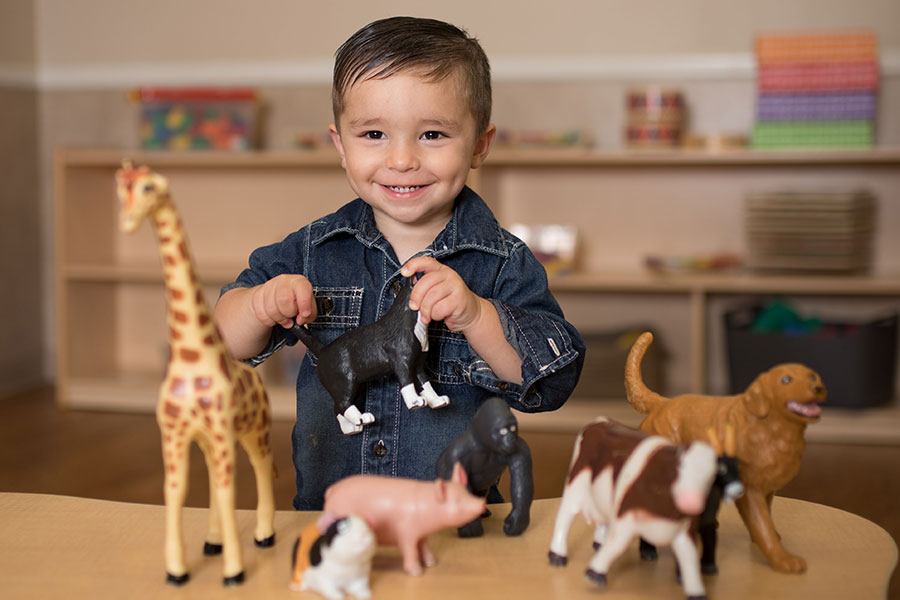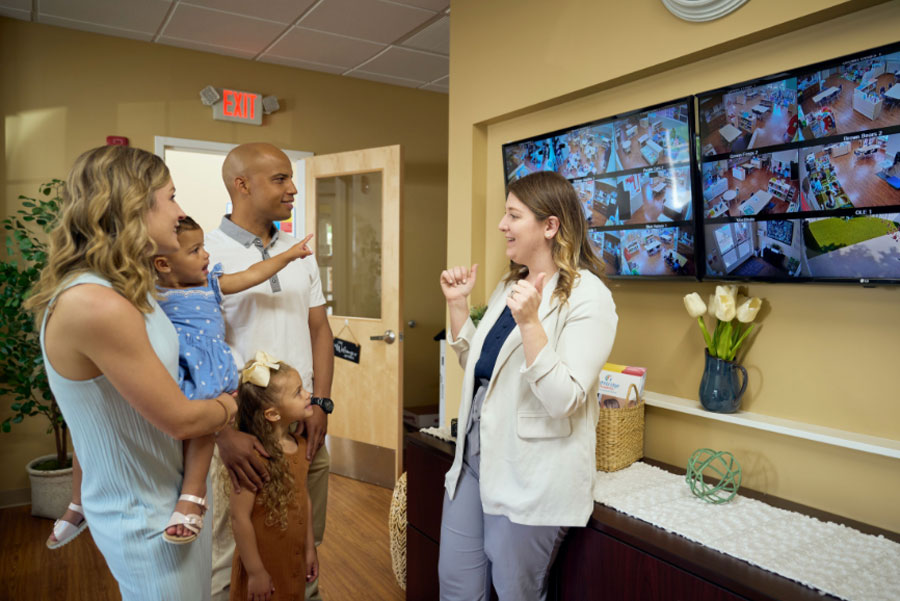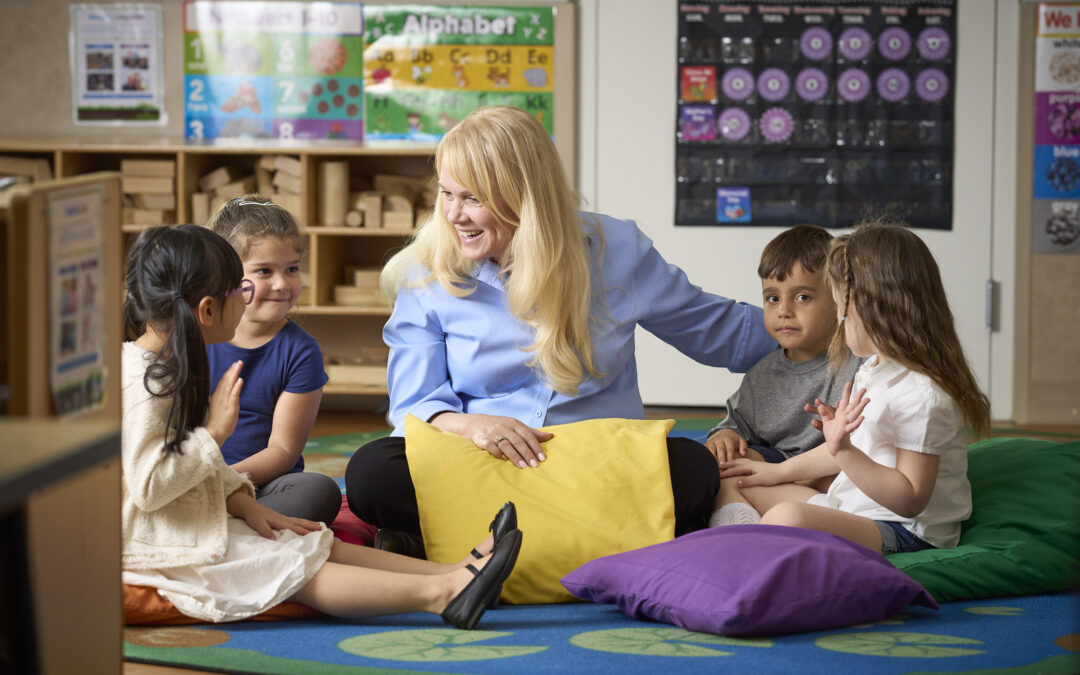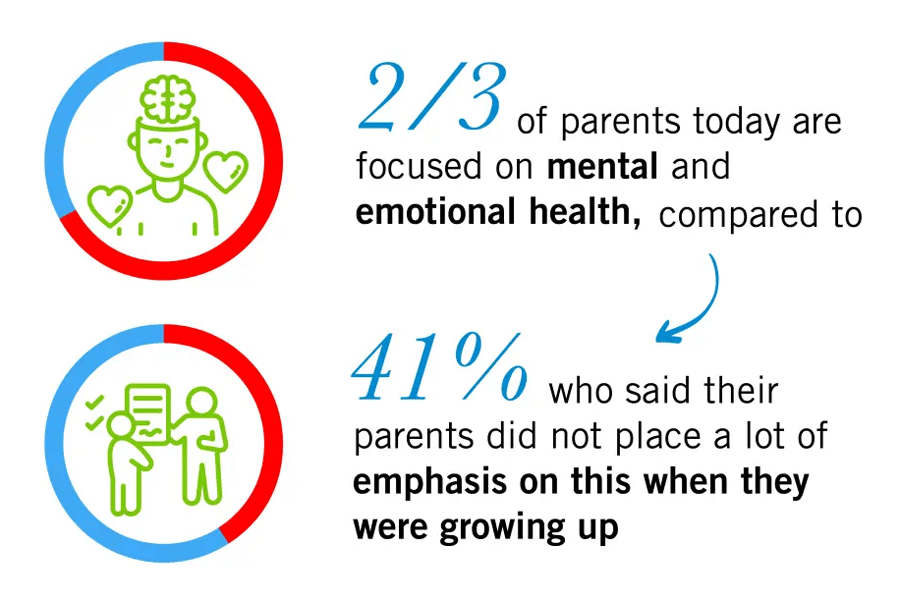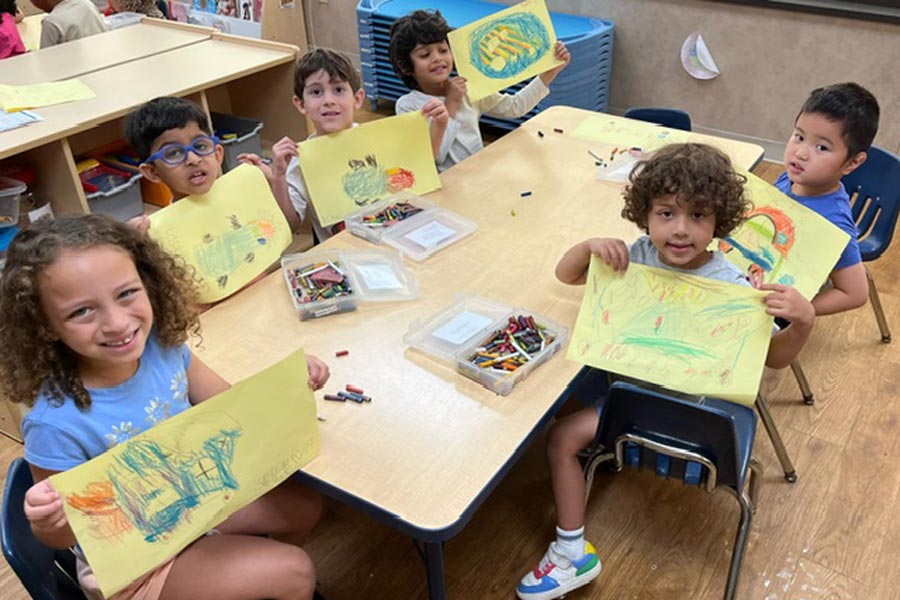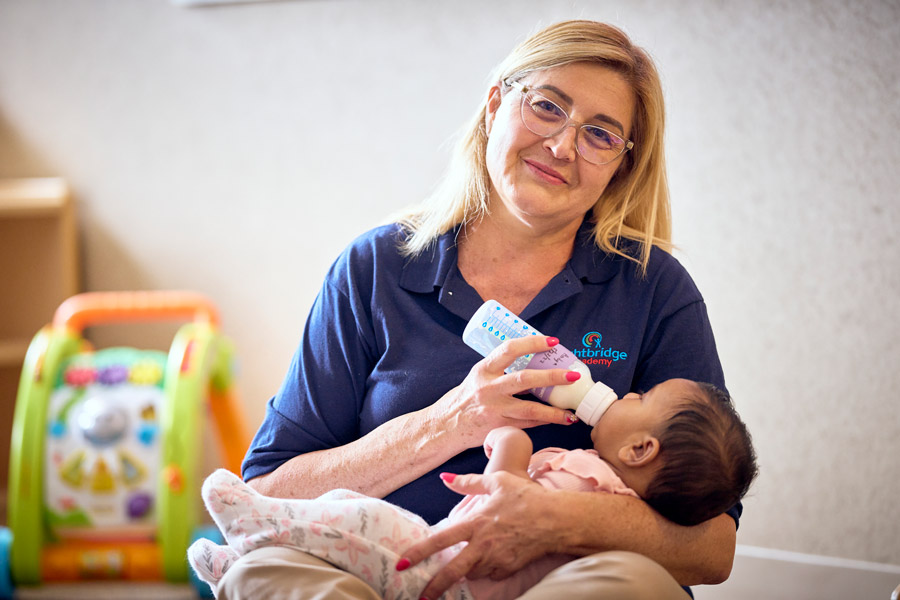As a parent, you want only the best for your little one, especially when it comes to their early learning days. These formative years lay the groundwork for their lifelong educational journey, so finding the right early childhood education curriculum is important. Learn what to consider when comparing early childhood education curricula and learning centers so you can make the best choice for your child.
7 Types of Early Childhood Education Curriculums
The world of early childhood education is rich with diverse curricula based on varying educational philosophies and learning styles. Here are some of the popular approaches you might find:
- Montessori: In Montessori, children take the lead on learning, exploring activities at their own pace and choosing activities based on their interests. The classrooms have a three-year age span to encourage mentorship and leadership skills. The Montessori curriculum fosters independence and decision-making.
- Reggio EmiliaThis approach allows children to follow their interests and make sense of the world around them. It uses self-directed and experiential learning focusing on expressive arts and community. Teachers help shape the project-based learning environment.
- Waldorf: By emphasizing imagination in learning, Waldorf education uses play-based learning and encourages creativity and artistic expression, using stories, music, art, and hands-on activities. It integrates the arts into all academic disciplines and uses no technology within the classrooms.
- HighScope: Known for its “plan-do-review” sequence, this approach encourages children to make plans, carry them out, and reflect on the experience, promoting active participatory learning. The HighScope curriculum promotes a daily routine with a variety of activities, including both individual and social play, small and large group activities, cleaning up after themselves, physical activity, and self-care skills. Teachers work alongside children as partners instead of leading the learning.
- Bank Street: This child-centered approach focuses on a whole-child approach through active learning, where education is not only about acquiring academic skills but also about nurturing emotional and social development. It trains teachers to meet the children where they are and then help them learn and develop from there.
- Traditional: Structured with a teacher-led approach, traditional programs are more focused on preparing children for the academic demands of school through direct instruction and regular assessments.
- Seedlings Early Childhood Education Curriculum: This curriculum used by Lightbridge Academy integrates theme-based lessons to enhance skills in science, technology, reading, engineering, art, and math. It combines ideology from several of the different philosophers listed above, including Maria Montessori, who helped create the Montessori curriculum, and Loris Malaguzzi, who developed the Reggio Emilia.
Factors to Consider When Choosing an Early Learning Center
When choosing an early learning center for your child, keep these key factors that go beyond just the early learning curriculum in mind:
- Curriculum philosophy: Does the early learning curriculum align with your child’s learning style and your family values?
- Learning environment: Is the setting nurturing and stimulating? Does it seem like a place where your child will be happy and engaged?
- Staff qualifications: Are the educators experienced and trained in early childhood development?
- Child-to-teacher ratio: Smaller ratios mean more individual attention for your child.
- Parental involvement: Centers that encourage parent participation and offer regular updates can help you stay connected to your child’s progress.
- Flexibility: Make sure the center’s hours and policies align with your family’s needs.
- Reputation and reviews: What do other parents say about the center? Do they feel they made the right choice? Are the reviews and testimonials generally positive?
Visit Lightbridge Academy
At Lightbridge Academy, our Seedlings Early Childhood Education Curriculum goes beyond traditional learning. We focus on nurturing every aspect of your child’s growth.
- Infant to pre-K: From infants building trust to toddlers exploring their world and Pre-K children getting school-ready, our programs grow with your child. Students who went through our Pre-K curriculum tested 97% proficient in Kindergarten readiness skills during the 2022-2023 Vine Assessment.
- A holistic approach: Our curriculum covers everything: reading, writing, science, technology, engineering, math readiness, art, and physical health, all within a loving, supportive environment.
- Circle of Care: Our philosophy involves not only your child but your family, the community, and the educators. This integrated approach makes sure that every aspect of your child’s development is supported.
Lightbridge Academy offers more than just education; we provide a foundation for lifelong learning and success. Schedule a tour at your local Lightbridge Academy today to see our curriculum in action.


